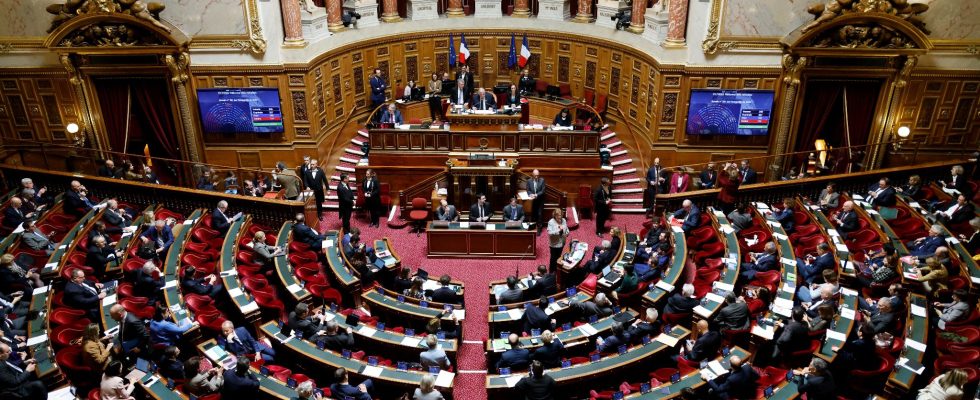The first results of the senatorial elections confirmed this Sunday, September 24, the stability of the Upper House, dominated by the right, and the difficulties of the Macronists, in an election marked by the return of the RN to the Palais du Luxembourg. The president of the LR group Bruno Retailleau welcomed a “reinforced senatorial majority”.
Less than eight months before the next major European electoral meeting, 170 of the 348 senatorial seats were to be filled for six years in around forty departments, from Landes to Pas-de-Calais via Paris, the Island from France or Mayotte. The other 178 will be in 2026. As of this Sunday morning, Macronie recorded an emblematic defeat, that of the Secretary of State for Citizenship Sonia Backès, the only minister in the running at the national level, beaten in the second round in New -Caledonia by the independentist Robert Xowie. Could this defeat lead Sonia Backès to leave the government, a rule hitherto applied by the President of the Republic for his ministers in the legislative elections? Neither the Elysée nor Matignon responded immediately on this subject.
Renaissance also closely follows the fate of its few executives in the Senate, Julien Bargeton and Xavier Iacovelli. Already reduced in numbers in the Senate, the Macronists united within the RDPI group (24 elected officials) risk paying for their weak local roots, and seeing their numbers decrease. “The last municipal elections took away all hope of substantial gain,” a disillusioned Renaissance senator was preparing. In Saint-Pierre and Miquelon, the former Minister of Overseas Affairs Annick Girardin was elected. Édouard Philippe’s Horizons party, for its part, seems more dashing after its municipal victories in Reims or Angers, synonymous with almost won seats.
Two voting methods coexist for these senatorial elections with a discreet campaign: in the departments where one or two senators are elected, the election took place by majority vote in two rounds (one round in the morning, the other in the afternoon) ; and in the other departments, it took place by proportional list voting in one round. The right is moving forward without pressure in the wake of its leader LR Gérard Larcher (74), vying for a sixth term as senator in Yvelines before a more than likely confirmation as president of the Senate on October 2. “In the difficult and unstable political times that we are experiencing, stability is already a great victory,” notes Bruno Retailleau, the boss of the LR group, currently credited with 145 senators out of 348 in total.
Jadot in the Senate
In a hemicycle still attached to the traditional left-right divide, a reflection of the municipal elections, the Socialist Party (PS) intends to remain the second group in the Senate (64 senators currently). “Symbolically, it is important,” recognizes the socialist leader – and candidate in the North – Patrick Kanner, satisfied with having signed “a win-win agreement” with the communists and ecologists in around fifteen departments. In Paris, the main list on the left sent eight of the twelve Parisian senators to the Luxembourg Palace, the divided right obtaining four seats, when the presidential majority emerged.
The list bringing together the components of the municipal majority, the PS, EELV, the PCF, Paris en commun and Génération. S won two thirds of the seats in the capital’s Senate, notably sending three environmentalists including the former candidate for the presidential election Yannick Jadot, according to a tweet from Anne Hidalgo’s first deputy, Emmanuel Grégoire. This left-wing alliance did not please rebellious France, dismissed for lack of sufficient local coverage to fill the ranks of the Senate.
Finally the National Rally, absent in the Senate since the departure of Stéphane Ravier at Reconquête, makes its return to the upper house. The far right obtained three seats in the North, Pas-de-Calais and Seine-et-Marne. “The democratic anomaly represented by the absence of the National Rally in the Senate has been repaired” and the party “is making strong progress”, the far-right party welcomed in a press release after the election of Christopher Szczurek in the Pas -de-Calais, Joshua Hochart in the North and Aymeric Durox in Seine-et-Marne. The RN is making its return to the Senate while senator Stéphane Ravier, elected under this label in 2014 and 2020, has since left the party for Reconquest of Eric Zemmour.
